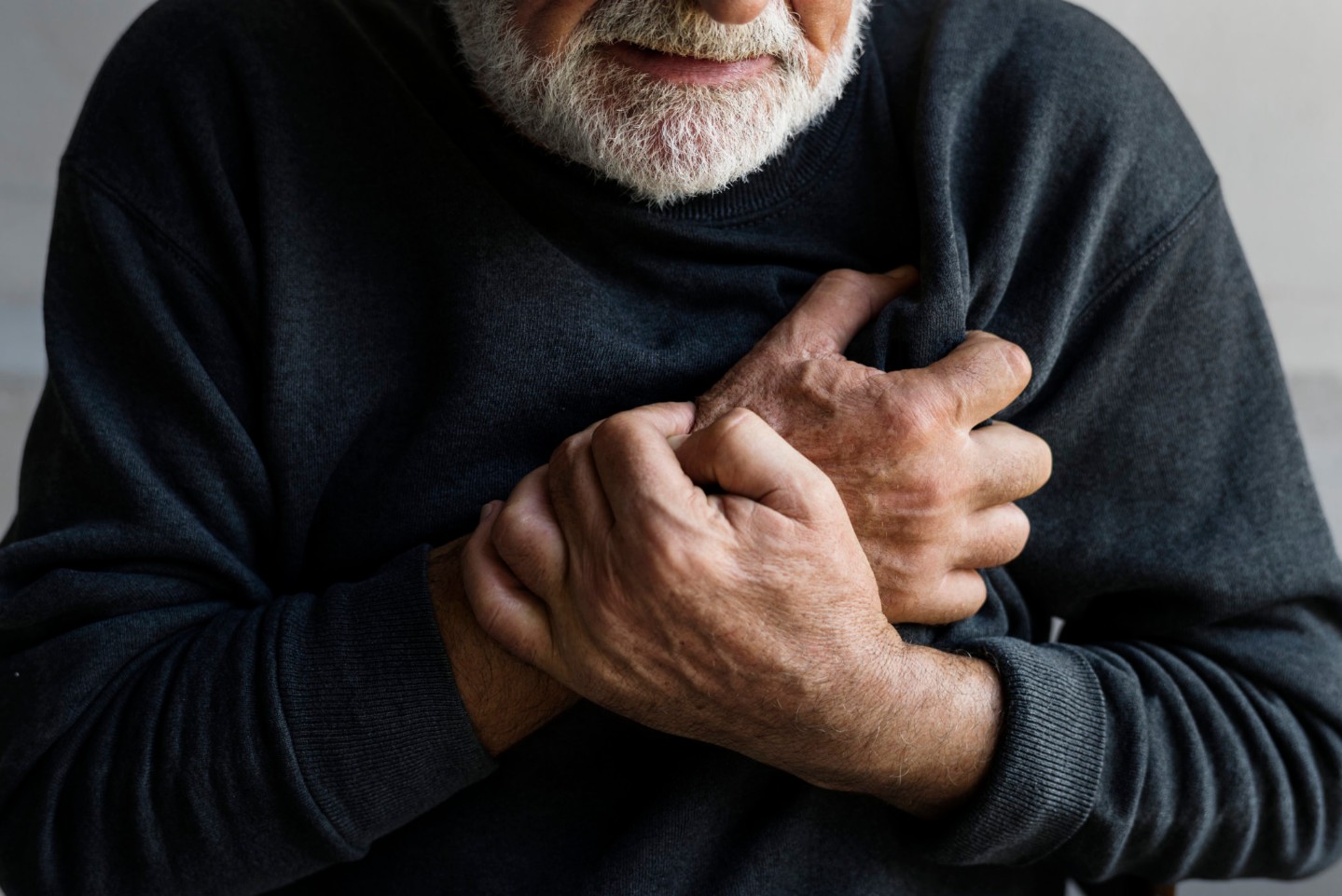Implanted Heart Rhythm Devices
APR 08, 2024A healthy lifestyle is very important to protect the electrical system of the heart. Once it gets damaged, the heart may have little ability to recover.
Read More
A fight with your husband. A dreadful traffic jam. Shoveling six inches of snow. All are unpleasant situations.
But as ordinary as they sound, they’re everyday events that for people at risk. People with high blood pressure, high cholesterol, diabetes or a family history of heart disease, could all have potential triggers for a heart attack.
A heart attack happens when one or more of the arteries supplying your heart with oxygen-rich blood become blocked. There are “triggers” that may make a heart attack that was going to happen later actually happen sooner.
We do see heart attacks after the first snowfall. There’s a lot of research supporting this. For the average person who doesn’t exercise, shoveling snow or playing in that neighborhood football game could be a trigger. Most at risk are those not used to exercise who also have risk factors such as high blood pressure or a family history of heart disease, among others.
If you’re sedentary and need to shovel snow, make sure you’ve warmed up first and delay the work until later in the morning. Every year, 11,000 people end up in hospitals from shoveling—most are orthopedic injuries but seven percent are heart-related. Ideally, you can protect against this by getting moderate exercise year-round.
When we wake up we experience an accompanying rise in cortisol to get us ready for the day. This can stress the heart. A disproportionate number of heart attacks happen between 5 a.m. and 8 a.m. as someone rises and his or her body releases hormones into the bloodstream.
He also said Monday mornings are problematic—we’re getting up earlier than we did on the weekend, we may have participated in activities over the weekend that weren’t healthy and we’re just plain stressed about work.
Stress hormones cause blood vessels to get narrow, slowing down blood making its way to the heart and causing a sudden spike in blood pressure.
That’s why more heart attacks happen after disasters. Research shows heart attacks rise after these events for those with higher cortisol levels. For example, there was a 49 percent increase in patients admitted with heart attacks within a 50 miles radius of the World Trade Center in the 60 days after September 11, 2001, compared with the 60 days before. There were also large increases in the number of heart attacks after the 1989 earthquake in San Francisco and the 1994 earthquake in Los Angeles.
Even those without heart disease can experience symptoms of a heart attack—and damage to their hearts—in response to stress. Researchers have identified stress-induced cardiomyopathy (also known as broken heart syndrome) as a condition that can lead to cardiac problems. It can be caused by a marital fight, a breakup, divorce or the death of a loved one.
Women are more likely to experience the sudden chest pain that comes with it. Stress-induced cardiomyopathy can happen to someone who’s healthy and doesn’t have blocked arteries. The false alarm, while not a heart attack, can cause problems. There’s a great outpouring of adrenaline, which can cause damage to the heart cells.
Super-sizing your meal or piling food on your plate also can unmask coronary disease. Let's look at an example of someone who’s not active and has 90 percent blockage in an artery. After a big meal, his blood is being shunted to the stomach and intestines, making the heart work harder and faster. The result? Chest discomfort—or worse.
The 2013 death of 51-year-old actor James Gandolfini drew public attention to overeating as a trigger. The Sopranos actor reportedly had a large meal consisting of fried foods and several drinks before he suffered a fatal heart attack.
Air pollution has long been known as a risk factor for heart disease. But plop yourself into the middle of a long traffic jam, breathe in some dirty air and you’re at higher risk for a heart attack. Stress and undesirable particulates in the air can be trouble. One study found traffic exposure triggers about eight percent of heart attacks among those at risk.

A healthy lifestyle is very important to protect the electrical system of the heart. Once it gets damaged, the heart may have little ability to recover.
Read More
Heart disease is the number one cause of death for women and men, claiming more lives than all forms of cancer combined.
Read More
With heart disease remaining the number one killer of women and men in the United States, it’s important to take action to protect your heart – even if you feel fine.
Read MoreWhen you need local health information from a trusted source, turn to the CHI Health Better You eNewsletter.